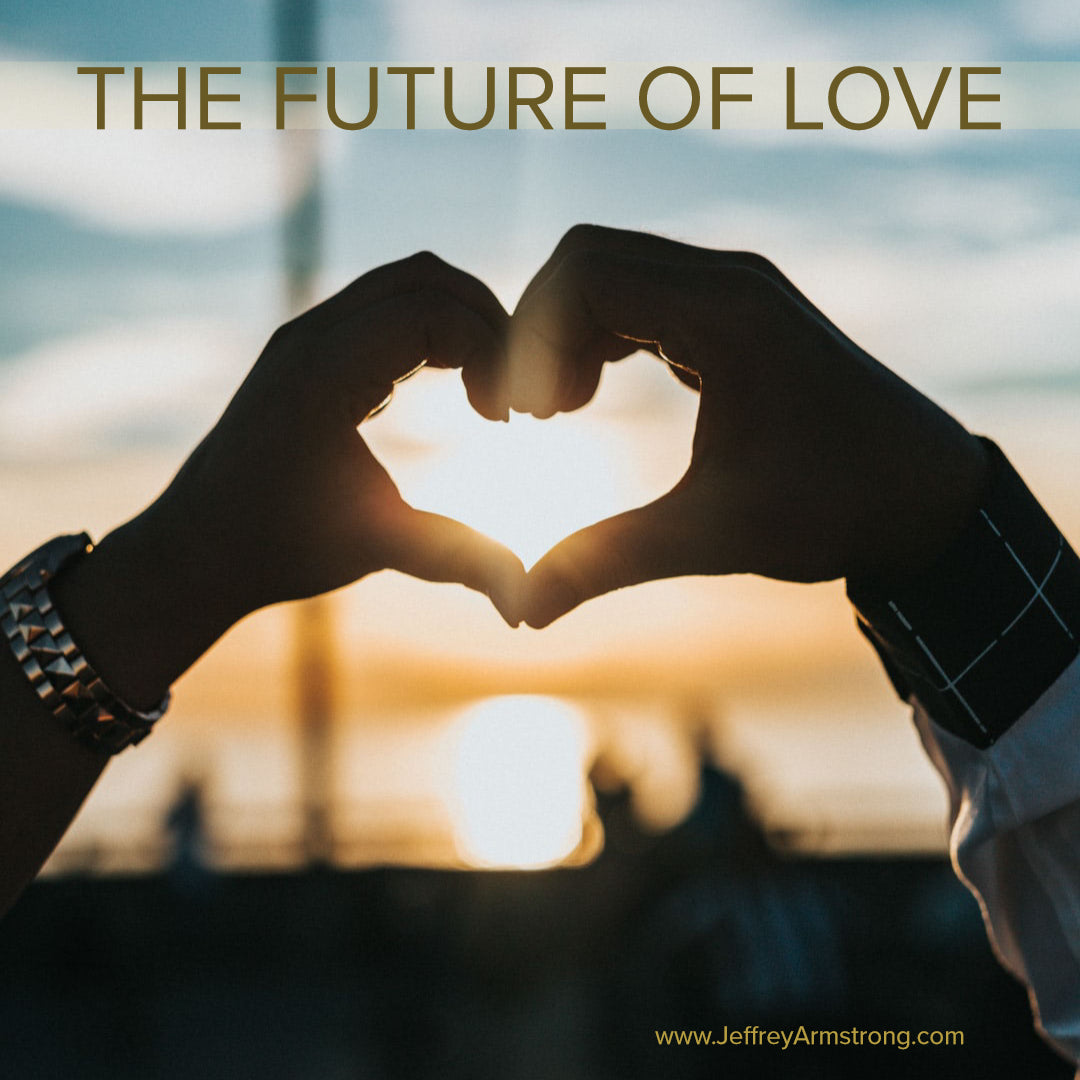The Future of Love: Admitting we know less than we think

Written by Ellen White Author OmSingles.
Article based on an interview with Jeffrey Armstrong.
Did you know people are more afraid of public speaking than they are of dying?
This statistic teaches us how much we fear presenting ourselves in front of others. So imagine how scary the process of true intimacy and new relationship can be for many people.
As the co-owner of a dating website, and a writer of relationships, I am constantly seeking new insight to benefit my website and to help shape change in the future of love and approach to relationship.
Yes, the constant message I keep getting is that we are all fundamentally blocked for a variety of reasons. Whether the root of these blocks was caused by family or school, as youngsters we received mis-information about our true selves and our true potential. This mis-information harms us in the process of love, relationship and intimacy.
However, understanding these limitations in a new and profound way may help pave the path for liberation and greater success. If we can break down the barriers in dating and confess that we know less than we think about love, ourselves and what it takes to be truly intimate, we may create a stronger and more honest foundation from which to build upon.
According to Jeffrey Armstrong—relationship author, ayurvedic astrologer, philosopher and a relationship guru, who also founded VASA, the Vedic Academy of Science and Arts in Canada—a lack of experience and skill in true intimacy is the reason for the relationship problems existing today.
People are not skilled in how to conduct themselves on a personal level beyond superficiality. Therefore we have an environment where people are led by ego, as opposed to knowledge. “In relationships today, ego expands to fill the space not filled with knowledge,” says Armstrong.
Let’s elaborate on this point.
If we do not “know” who we truly are in our core, or how to act intimately, or what to do in intimate situations, then our ego will kick in as a replacement of knowledge and make decisions for us. This is problematic because the ego serves only to protect and defend, and always acts out of fear. So if people are searching for ‘happy’ love, yet coming from ego as a default coping mechanism, then wherein lies the chance for true authentic connection?
Let’s go back to the root of where this comes from according to Armstrong.
Back in ancient times, cultures were homogeneous and consisted of 200-300 thousand inhabitants. People interacted under a common denominator of shared values and purpose. Everyone experienced a similar process and context of life at least eighty percent of the time. Relationships developed and evolved under that shared context. They were experienced and knowledgeable in their surroundings, so it was much easier for people to function, live and operate together. Everyone knew their place.
Today, people live in complex bio-geneous multi-cultural cities of more than one million which makes us displaced at our core, and yet we are seemingly trying to connect and live harmoniously together with ‘someone’ 100 percent of the time. This is a root cause for many relationship problems because there is so much more people have to figure out. And yet nobody knows exactly what it is or why. So again, the ego comes in to play filling the space not filled with knowledge.
Yet people seem to feel safer at their jobs. “I just want to focus on work,” is what we all hear when we are struggling in our relationships. Why is that? Because people are skilled in their workplace and they know what to expect and what is expected of them. Knowledge is at the forefront of this experience.
Creating a common denominator will also help bring people closer together and create safer mutual initial dialogue; a reason there is greater marital success within specialized groups of shared interest. They live the same purpose and understanding of life. They know more about what is expected of them.
In my opinion, this awareness helps to unravel some of the pieces in the complex world of dating and relationship. We are all reaching for completion in our lives on an intimate level. We are all searching, hoping and aching for that someone who will love us unconditionally even if we don’t know what the hell we are doing. That is a huge task for anyone to undertake.
I, personally, am a hopeless romantic. I’ve spent a lifetime living under the dream of magical, unconditional love. And yes, that is possible. But the goal is to cross a big bridge before getting to that point. A bridge of training, knowledge and experience in working through all the uncomfortable steps.
I’ve noticed that married people have greater experience working through the awkwardness that exists between two people. They have to stick it through, thus allowing for the experience, whereas singles’ tend to run quickly from struggle due to a lack of knowledge on how to get past it.
I hope that patience and humility can also help. Because if we start our relationships from this humbling and honest place of “not knowing” then perhaps we won’t expect, react and demand as much because that is what usually leads to disappointment. We are all tribally different. And with greater knowledge of this fact and more nurturing of each other, people can start to feel better for being different, instead of mad.
Let’s embrace one another from a place of truth:
“I am a non-knowing, possibly inexperienced relationship attemptee. Do you want to embark on this journey with me?”
As previously published on yoganonymous.com

